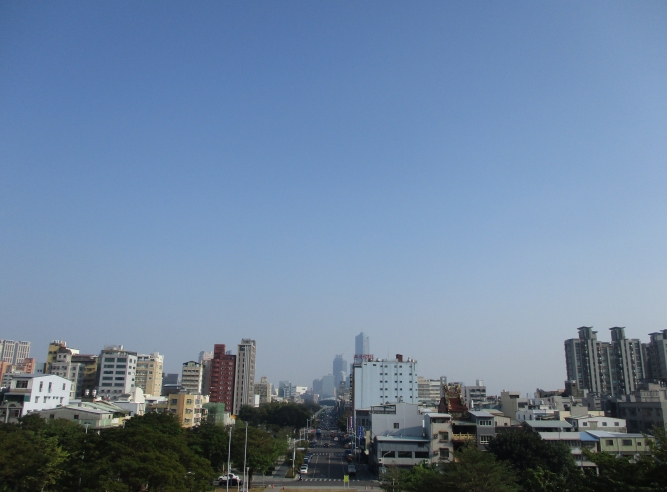WEDNESDAY, 2 JANUARY 2019
I was on my way home on my bicycle after buying dinner. A blue truck blocked the entrance to the alley in which I wanted to go down. I went around the truck, knowing that I had to be careful because I couldn’t see who was coming down the alley on the other side of the truck. As I got to the other side, there was indeed a man on a scooter riding at high speed in my direction.
I thought: “If I collided with this guy, I would blame the driver of the blue truck.”
Then I thought: “No. It would have been your fault. It is your responsibility to consider and deal with such risks.”
As thoughts roll around in one’s brain, another thought struck soon after: Imagine you take this idea further, stating that you are always responsible for what happens to you. If someone breaks into your home in the middle of the night when you and your family are sleeping, you are responsible for that. How? You could have secured your home better. If you’re hijacked on the way home, you are responsible for that. Why were you in that place at that time of the day? What countermeasures did you have in place? If you did have countermeasures in place, it was clearly not enough.
It gets worse. If you get assaulted late at night … why didn’t you have a weapon with you? Why were you alone, in that place? Why didn’t you apply self-defence techniques? If you don’t know any self-defence techniques, why not?
It seems as if, with this kind of thinking, one wants to absolve the wrong-doer from his nefarious action or behaviour. Not at all. For example, if the man or woman being attacked in the street crushes the assailant’s testicles and he is never able to conceive children, then he did not fulfil his responsibility to himself. If he gets arrested, and he goes to jail and he is sexually abused by other prisoners, he can only blame himself for it.
The frightening aspect of this way of thinking is that you realise you can’t just blame someone else for your own accidents or hardships. When think about it for a second, you also realise that it means you have much more power in your hands than you might have imagined. The person who is afraid of being assaulted can immediately begin to look at weapons that can be carried on their person – from a gun to pepper spray. The responsible adult who wants to safeguard their home and family has the ability to do much better than they are likely doing at present. And the man or woman with criminal intentions who doesn’t want to be sexually abused in prison has the free will to not commit criminal acts.
Think along these lines, and you ultimately think of yourself as an agent of change, as someone with the abilities to rearrange the world to a large extent in a way that suits you. It also means that you will develop the character to accept responsibility when a lesser person would blame someone else.
WEDNESDAY, 9 JANUARY 2019
Exactly one week later …
The most powerful “lifehack” I know is this:
Take responsibility for everything. Even for things that seem to “randomly” happen to you.
This changes your thinking and forces you to consider the extent and effect of EVERYTHING you do.
— Ed Latimore (@EdLatimore) January 8, 2019
SUNDAY, 27 JANUARY 2019
Another insight gained from a traffic situation …
One easily gets filled with bitterness about something other people do to you. And every time someone did something to you and got away with it, you feel even more powerless. And even more filled with bitterness.
“It’s your responsibility,” emerged the phrase again late this afternoon – specifically as a reminder that I had to walk closer to the side of a narrow alley to avoid getting flattened by one of the reckless scooter drivers.
Then I realised: Every time you think something that somebody else has done to you was your responsibility, you take power away from that person, and give it to yourself. You also give yourself more responsibility, to be honest, and more opportunity to be blamed for a situation. But you also give yourself more power to create your own life as you see fit, and more power to protect yourself from what threatens you.
______________________

